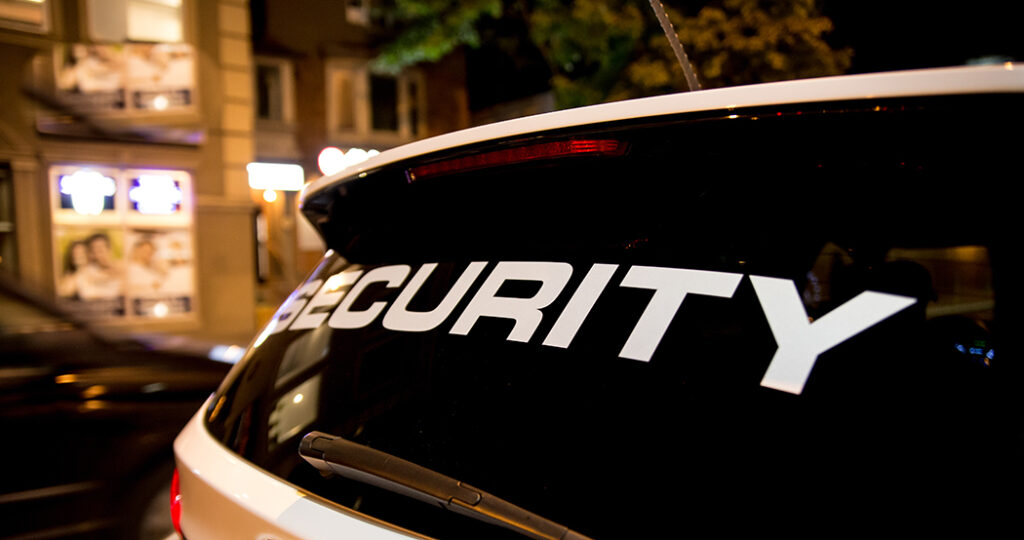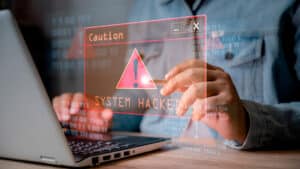Vehicle safety and security guidelines not only enhance patrols and driving behavior but also protect a security firm from liability and issues caused by poor vehicle performance. Without proper preparation, a vehicle can lead to significant damage or injury in the wrong situations.
The best way to avoid liability issues is with proper policies regarding vehicles. You can easily adapt guidelines to the current scope of your firm, but here are important ideas to help get started!
Securing Tools and Weapons in Vehicles
All tools and weapons required for a job must be properly secured in the vehicle at all times. Nothing should be bouncing around a vehicle used for patrol, but this is even more important when considering company-owned tools and devices, as well as any weapons as firearms that could cause injury when unsecured. There should be a no-tolerance policy for tossing things in the next seat while out on patrol: That’s a setup for problems in an emergency situation.
We have also seen cases where guards bring their own appliances or tools out for work, including small refrigerators kept inside a vehicle, etc. It’s up to the firm whether to allow this, but there may be risks with these extra appliances in vehicles, and specific guidelines may apply to them as well.
Mobile Device Safety While in Vehicles
It’s important to stay in contact with dispatch and other patrols when using a vehicle. Radios, walkie-talkies, and mobile apps can all play important roles here – but they should never be a distraction while operating the vehicle. Follow local rules regarding the use of smartphones while driving, and mandate phone holders if necessary so guards can communicate hands-free when they need to. The last thing any firm wants is a liability issue where a guard was distracted while communicating with dispatch and caused an accident.
Staying Away from Pedestrians in a Vehicle
Avoid pedestrians when in security vehicles, period. Do not allow any guards to use their vehicle as an obstruction or tool to try and control pedestrians. This is a recipe for disaster and personal injury, which can easily lead to lawsuits. When people are on foot, the vehicle needs to stay far away.
Conducting Vehicle Checks
It’s a particularly good idea to require a readiness and inspection checklist that guards must go through before heading out on patrol. The readiness steps should include checking tire health, making sure the tank is full of gas, check that nothing is obstructing views out of the windows, ensuring all tools are properly secured, and ensuring the basic vehicle operations – from putting on a seatbelt to successful ignition – are possible. This may seem very rote, but this is another case where a firm must avoid sending a vehicle out on patrol when it’s not up to the task, especially if it could have been prevented by a proper inspection. Inspections can also watch for things like the age of the battery, or if a vehicle model needs any important recall upgrades.
If most of your guards are using their own vehicles, a checklist remains just as important! Otherwise, a company has no guarantee that the vehicle is ready to patrol or able to handle important events.
Vehicles While Idling
Consider if you want specific guidelines for guards waiting in idling vehicles. If vehicles are stationary for a certain amount of time during a patrol or surveillance job, should the guard turn off the vehicle? Turning a vehicle off will save gas and make it easier for the guard to hear any signs of trouble that the engine might obscure. However, it also makes quick action more difficult if the vehicle needs to be started again in a hurry. If this is a factor for your firm’s contracts, think about broad guidelines for guard safety in these situations.
Client Transportation in Vehicles
If a guard will be transporting a client, their vehicle needs to be in top shape, and they should have extensive training in defensive driving as well as a spotless record– security training classes can address client transportation specifically and are an excellent starting place. Training classes can also include a variety of useful advice on ensuring client safety in a vehicle, choosing the right route to a destination, and more. Everything we’ve said about vehicle safety applies much more so when a client is on board.
Specialized Guard Auto Insurance
Look into dedicated auto insurance for your security guards if they frequently patrol or use vehicles on the job. This insurance can specifically cover accidents as well as liability issues for the company if something happens while a vehicle is in use. It can be important coverage if vehicle damage or collisions are a possibility and will help cover situations where the unexpected leads to unfortunate results.
Final Note: When Possible, Invest in Company Vehicles
A fleet of company vehicles is an excellent method to ensure vehicle safety. Dedicated tools, easier inspection checklists, maintenance plans, and even armored vehicles are all much easier to arrange. This can be a tough sell for smaller firms that are still growing, but it’s a smart long-term strategy if you are involved in plenty of vehicle work.






